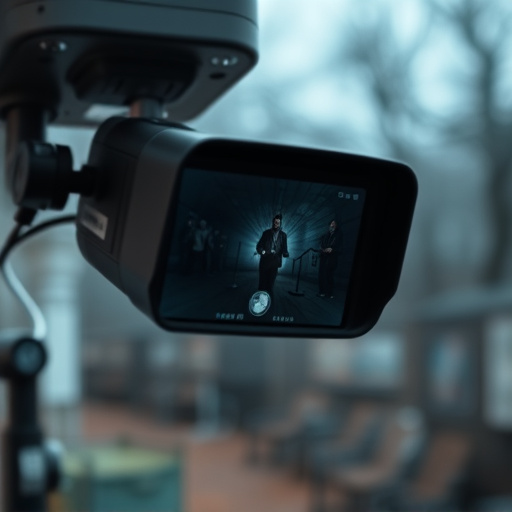In many US states, Hidden Camera Laws protect citizens' privacy and vary significantly. These laws govern where and how hidden cameras can be used, with strict rules in places like bathrooms or bedrooms. Businesses must comply while law enforcement and healthcare have exemptions. Electromagnetic signal scanning is a non-invasive technology to detect hidden cameras, operating within legal boundaries. Scanning experts must follow Hidden Camera Laws by State for ethical and legal use, obtaining permissions and maintaining records. Each state has distinct regulations; for instance, California requires explicit consent, while Texas allows home security cameras under conditions. Staying informed is crucial for both privacy and compliance when employing surveillance technology.
“Uncover the unseen with our comprehensive guide to hidden lens electromagnetic signal scanning. In an era where privacy concerns are paramount, understanding hidden camera laws is crucial. We explore the science behind electromagnetic signal scanning, offering insights into detecting clandestine devices. This article delves into legal considerations and best practices for responsible scanning, while also providing a state-specific breakdown of Hidden Camera Laws by region, ensuring you’re equipped to navigate this intricate landscape.”
- Understanding Hidden Camera Laws: A Comprehensive Overview
- The Science Behind Electromagnetic Signal Scanning
- Legal Considerations and Best Practices for Signal Scanning
- State-Specific Hidden Camera Laws: A Deep Dive into the Details
Understanding Hidden Camera Laws: A Comprehensive Overview
In many countries, including the United States, the use and placement of hidden cameras are governed by specific legal frameworks known as Hidden Camera Laws. These laws vary significantly from state to state, reflecting diverse cultural and societal perspectives on privacy rights and surveillance. Understanding these laws is crucial for both individuals seeking to protect their privacy and businesses aiming to implement security measures without crossing legal boundaries.
Hidden Camera Laws by State provide guidelines on where and how cameras can be used. For instance, some states prohibit the installation of hidden cameras in places like bathrooms or bedrooms, areas typically considered private sanctuaries. Others have stricter regulations regarding the consent of individuals being recorded. Business owners must also be aware that certain industries, such as law enforcement or healthcare, have specific exceptions to these laws, allowing them to use surveillance for legitimate purposes. Staying informed about local Hidden Camera Laws is essential to ensure compliance and respect for individual privacy rights.
The Science Behind Electromagnetic Signal Scanning
The science behind electromagnetic signal scanning involves detecting and analyzing patterns of energy that can reveal hidden information. These signals, often imperceptible to the human senses, carry unique signatures that can be deciphered using specialized equipment. By scanning through various frequencies, technicians can identify electromagnetic emissions from a range of devices, including those used in surveillance like hidden cameras. This non-invasive method respects privacy laws, such as Hidden Camera Laws by State, which protect citizens from unauthorized monitoring.
Electromagnetic signal scanning leverages the fact that many modern gadgets emit radiation as they function. From wireless routers to cell phones, these devices constantly communicate using specific frequencies and protocols. By studying these signals, experts can uncover details about an area’s electronic environment, helping to locate hidden cameras or other surveillance equipment without breaking any laws or causing disruption.
Legal Considerations and Best Practices for Signal Scanning
When conducting electromagnetic signal scanning, especially for hidden camera detection, it’s crucial to be aware of and comply with local laws regarding privacy and surveillance. Different states in the US have varying Hidden Camera Laws, so understanding your legal obligations is essential. For instance, some states require explicit consent from individuals before scanning devices for covert cameras, while others may permit certain types of surveillance without permission. Non-compliance can lead to severe legal repercussions, including fines and potential civil lawsuits.
Best practices dictating responsible signal scanning include adhering to ethical guidelines, obtaining appropriate permissions, and ensuring transparent communication. It’s advisable to inform individuals or authorities about the scanning process beforehand, especially in public spaces. Additionally, maintaining accurate records of scanning activities and locations can help demonstrate due diligence and protect against potential legal challenges related to Hidden Camera Laws by State.
State-Specific Hidden Camera Laws: A Deep Dive into the Details
In the United States, the legal landscape surrounding hidden camera laws varies significantly from state to state. Understanding these laws is crucial for both individuals seeking to protect their privacy and businesses aiming to implement security measures. Each state has its own set of regulations that dictate where and how hidden cameras can be used, with varying degrees of restrictions based on public and private spaces. For instance, some states have strict rules prohibiting the use of hidden cameras in bathrooms, dressing rooms, and other areas traditionally considered private. Others allow limited use under certain conditions, such as for security purposes in businesses or residential properties.
When it comes to Hidden Camera Laws by State, knowing your rights and obligations is paramount. For example, California has some of the most stringent laws, requiring explicit consent for recording conversations or images, while Texas allows hidden cameras for home security but places restrictions on their use outside private property. New York, too, has specific regulations that govern the installation and usage of surveillance devices, emphasizing respect for individual privacy rights. Staying informed about these state-specific laws is essential to ensure compliance and maintain legal integrity when employing hidden lens electromagnetic signal scanning technology or any form of surveillance equipment.
In conclusion, understanding hidden camera laws and the science behind electromagnetic signal scanning is paramount in today’s digital age. As technology evolves, so do the methods of surveillance, making it crucial to stay informed about state-specific regulations regarding hidden cameras. By adhering to legal best practices and being aware of these laws, individuals can protect their privacy while ensuring a safe and secure environment. Remember, knowledge is power when navigating the complex landscape of Hidden Camera Laws by State.
